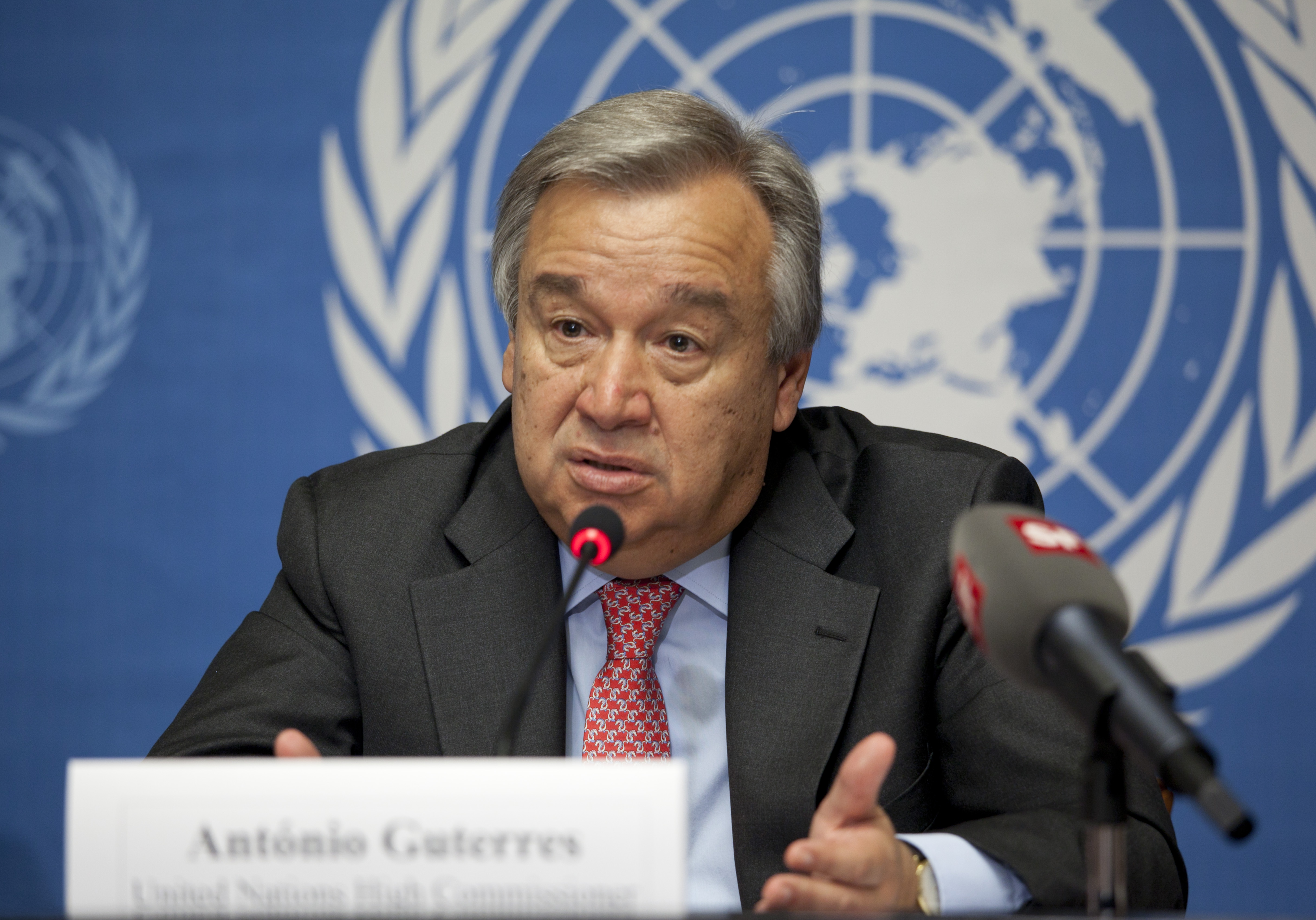Guterres << goo TEH rehsh >> , António (1949-…), is a Portuguese politician and diplomat. In 2017, he became the ninth secretary-general of the United Nations (UN) . He replaced Ban Ki-moon , who served two five-year terms as secretary-general. Guterres was prime minister of Portugal from 1995 to 2002. He was the first former head of government to become the world’s top diplomat.

António Manuel de Oliveira Guterres was born on April 30, 1949, in Lisbon , Portugal. He graduated in 1971 with a degree in electrical engineering from the Instituto Superior Técnico (IST), an elite engineering school. The school was part of the Technical University of Lisbon but later became part of the University of Lisbon. Following graduation, Guterres taught briefly at IST. In addition to Portuguese, he is fluent in English, French, and Spanish.
Guterres began his political career in 1974, when he joined Portugal’s Socialist Party. He was elected to Portugal’s national parliament in 1976 in the country’s first democratic elections after more than 50 years of dictatorial rule. He served in the parliament until 1983, and again from 1985 to 1995. In 1991, Guterres founded the Portuguese Refugee Council, an organization to aid refugees and people seeking asylum in Portugal. He became the leader of the Socialist Party in 1992, and prime minister of Portugal in 1995. In addition, he served as president of the European Council, a governing institution of the European Union (EU), for part of 2000.
From 2005 to 2015, Guterres was high commissioner of the UNHCR, the United Nations’ refugee agency. During his tenure, the agency faced a humanitarian crisis as millions of refugees flooded into Europe from war-torn Syria , Iraq , and other conflict zones. Guterres enacted a number of reforms at the agency. He cut staff and administrative costs, increased the agency’s volume of activities, and improved its emergency response capacity for parts of the world with violent conflicts. See United Nations High Commissioner for Refugees (UNHCR) .
In 2016, Guterres was appointed to a five-year term as UN secretary-general. In that role, he has faced such major challenges as civil war and unrest in Syria and other parts of the Middle East; an international refugee crisis; global terrorism; climate change; gender inequality; and a pandemic (worldwide epidemic) of the COVID-19 respiratory disease. In 2021, the UN General Assembly appointed Guterres to a second term as secretary-general, from 2022 through 2026.
